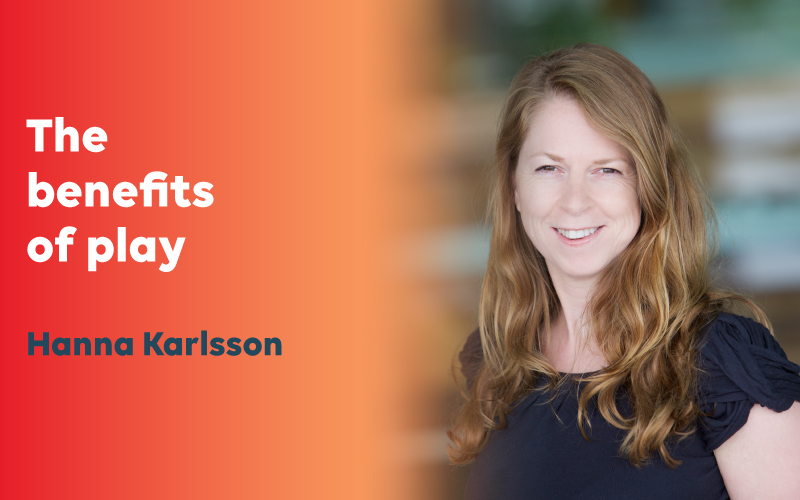
The benefits of play
Hear Hanna Karlsson (Founder, theWorkshopper) delve further into the importance of play when she presents at AgileAus19. More info here »
While the benefits of play have been recognised in fields such as psychology and neuroscience, a resistance still remains. Play is often seen as a frivolous activity, less valuable than ‘productive time’. However, play enables us to improve learning, create psychological safety, increase engagement, and, maybe most importantly, it can allow us to embrace ambiguity and creativity.
Somewhat ironically, we’ve created a world that makes adaptability and creativity harder, as well as more important. We are hardly optimised to deal with adaptation and creativity. Thus, in these times of increasing speed of change and the importance of adaptability, play is crucial! As kids, we didn’t hesitate to throw ourselves into any activity that looked like a bit of fun. Yet, when we grow up, we seem to lose that ability. We develop filters that make it a challenge to be silly and let our guard down.
In some ways, these filters are great: they stop us from wasting the energy that’d be expended by imagining all possible options at all times. Other filters are there to make sure we behave appropriately, adhere to social rules, and avoid rejection. Unfortunately, these filters also make it harder for us to come up with novel ideas. And, even if we do think up these ideas, we are prone to keep things just like they are. We need to feel safe, happy and engaged in order to have enough energy and courage to be creative and open to change.
Making a concerted effort to engage in play – both through initiatives like #play14 and in everyday life – lets us temporarily suspend our fixation with productivity and appearing ‘proper’. Play pumps you up with good ‘brain juices’, stimulating neurotransmitters linked to well-being and pro-social behaviour. It releases dopamine (increasing focus and learning capabilities) oxytocin (building trust and collaboration) and endorphins that move you into a relaxed, creative mode. It’s a brain cocktail that beats even the best Mojito!
In unlocking these parts of our brain, play becomes a key ingredient in organisational health — boosting our ability to come up with novel ideas. Play also helps us get comfortable with ambiguity: it creates an environment where we don’t know what comes next but where it is safe to fail.
Ultimately, play encourages us to challenge the filters we’ve constructed and deliberately work around them – and you’ll have a laugh in the process!

Stay in the loop
To receive updates about AgileAus and be subscribed to the mailing list, send us an email with your first name, last name and email address to signup@agileaustralia.com.au.

0 Comments